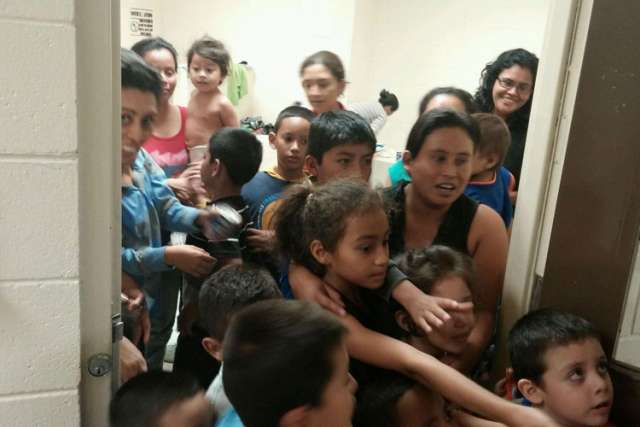"These children are exposed to sexual violations, to starvation, to mutilations when they fall (off trains or trucks) and even to the loss of life when their boats sink or they get lost in the desert," Archbishop Silvano Tomasi, Vatican observer at U.N. agencies in Geneva, told the U.N. Human Rights Council.
The growing phenomenon of unaccompanied minors crossing international borders calls for "a new form of protection," the archbishop told the council June 13.
"Forced displacement of people caused by current wars and the multiplication of violent conflicts in several regions of the globe is pushing hundreds of thousands of people to risk their lives in the search for survival," the archbishop said.
Among those fleeing violence, he said, are "thousands of children who leave their homes and become asylum seekers. In 2011, 12,225 unaccompanied minors applied for asylum in Europe," coming from "all the trouble spots of the Middle East and Africa."
"The explosion of child migrants traveling alone in the hope of crossing the border into the United States" is also a problem, he said. Archbishop Tomasi told the council that 38,883 children traveling alone were apprehended at the U.S.-Mexican border in 2008 and that the number could be well over 70,000 this year. U.S.-based human service agencies estimate the number will top 90,000. The six-month total was more than 48,000.
In early May, Mark Greenberg, the acting assistant secretary at the Administration for Children and Families in the U.S. Department of Health and Human Services, said the number of unaccompanied minors apprehended during the 2011 fiscal year was 6,560. "Reasons for this increase are complex, but a key factor is the high level of violence in Honduras, Guatemala, and El Salvador, the countries of origin for most" of the unaccompanied minors, he said.
Archbishop Tomasi said many of the teens travel "to exercise their natural right" to be with their parents, who have already immigrated, while others would rather take risks to reach a destination they dreamed of "rather than dying of hunger or being killed by gangs and organized crime at home."
While telling the U.N. Human Rights Council that immigration generally is good for countries and their economies -- once the migrants are settled and working -- the risks unaccompanied minors face are huge, the archbishop said.
"Children on the move constitute a humanitarian emergency that calls for immediate remedies," he said, including programs to reduce the extreme poverty and violence "at the source of the children's exodus."


